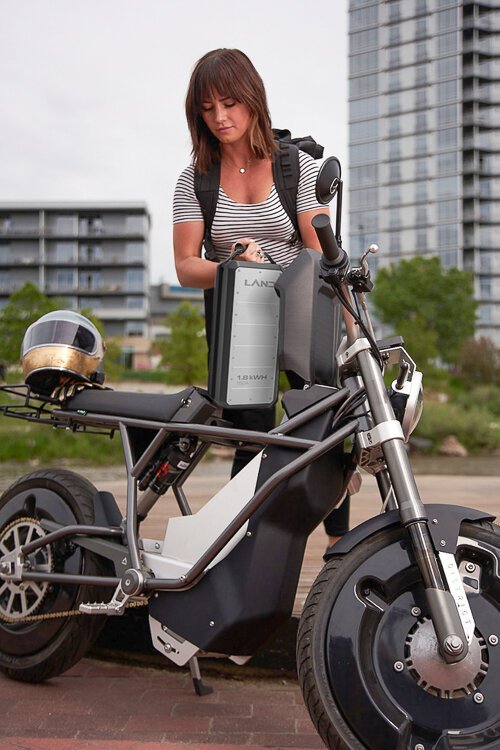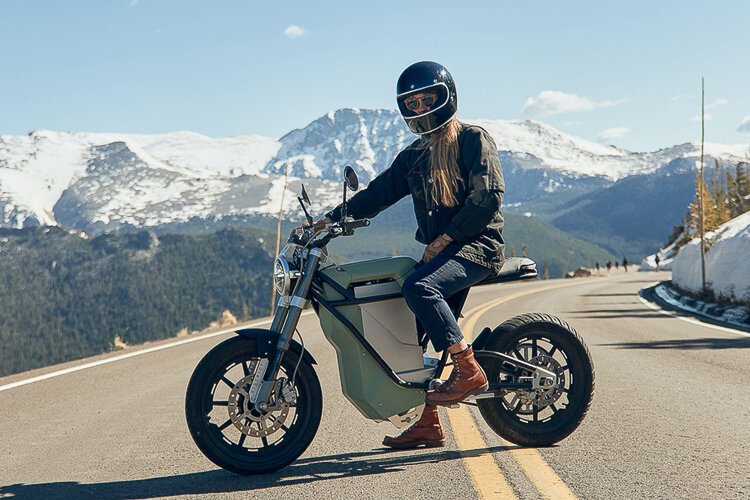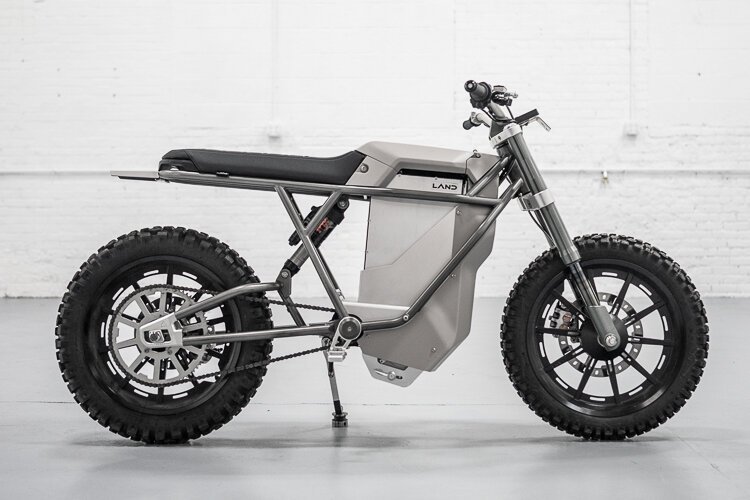Landing a reboot: CycleWerks co-founder transitions into launching a new e-bike breed
If Scott Colosimo were building his newest tech device—a hybrid e-bike—in Silicon Valley, a second act like what he’s about to execute would be the norm.
 LAND Founder and CEO Scott ColosimoInstead, Colosimo, a Cleveland Institute of Art grad who used his 10 years of manufacturing knowhow from a stint in China to launch Cleveland CycleWerks in 2009, is determined to make Cleveland’s Detroit Shoreway neighborhood his base of operations—again—for his newest venture.
LAND Founder and CEO Scott ColosimoInstead, Colosimo, a Cleveland Institute of Art grad who used his 10 years of manufacturing knowhow from a stint in China to launch Cleveland CycleWerks in 2009, is determined to make Cleveland’s Detroit Shoreway neighborhood his base of operations—again—for his newest venture.
Only a few individuals have been able to navigate a simple company reboot in Cleveland. In Colosimo’s case, his new company, LAND, is an e-bike makeover after Cleveland CycleWerks hit the skids in 2020—right as it was leaving the gate.
Colosimo was all set to launch with a line of battery-operated steel framed bikes that could, with the flick of a switch, toggle between e-bike, moped, and street-legal motorcycle with a splashy event at the Western Reserve Historical Society’s Crawford Auto Aviation Museum in March 2020—days before the pandemic hit Cleveland.
Two years later, Colosimo is about to launch version 2.0 of his e-bike—rebranded from the original CycleWerks Falcon to the LAND model, which he’s named the District.
Colosimo says the pandemic may have snuffed his first company, which he sold to his investors, but he and his close circle of designers and fabricators wasted no time in launching LAND.
“No one could have predicted we would launch into this (expletive) show,” Colosimo says. “Our team was locked down. We ordered in, and in 12 months we covered three years’ worth of R&D.”
An important trend emerged during the pandemic that Colosimo is confident will translate to more sales for LAND—compared with the paltry 1,000 units sold domestically during Cleveland CycleWerks’ run.
People got a taste for the outdoors and bikes during the pandemic, Colosimo says, a trend that bodes well for e-bikes as a transportation mode that can connect them to parks outside of their neighborhoods.
 The District is a two-wheeled E Moto, a transitional vehicle that performs as an e-bicycle, e-moped, and e-motorcycle through a ride mode selection interface, with a top speed of 65 mph.
The District is a two-wheeled E Moto, a transitional vehicle that performs as an e-bicycle, e-moped, and e-motorcycle through a ride mode selection interface, with a top speed of 65 mph.
“People got outside and said, ‘I like this. I’m connecting to nature,’” Colosimo observes. “It drove them to buy bikes—a lot of inexpensive bikes—which is like the gateway drug.”
At the same time, many people were shifting their workspaces to remote locations, which often meant using the great outdoors as their offices.
District owners can plug a laptop into the bike’s battery, Colosimo says, which he says appeals to the “work anywhere” and “van life” crowd.
Is the need for mobile power going to sell his bike’s $8,000 price tag? Colosimo says he hopes to convince people that the beefy and muscular frame of the District is as much a tech platform, or a lifestyle choice, as it is a form of transportation. And, he points out, the District is an ecologically friendly option.
“People had a lot of time to think, and saw, globally, the skies clear in L.A. and China [during the pandemic],” he muses about the telework shift over the past two years. “Then, they went back [to the office] and to smoggy skies. There’s a whole representation of tailpipe emissions.”
 With solar charging as an option, LAND aims to capture traction in the new mobile energy market.Colosimo is also hoping to bank on the Cleveland manufacturing history, where he is already eyeing an expansion from the wear West Side to roomier digs in MidTown to keep up with his goal of manufacturing 200 bikes per month in 2022. He says the ecosystem for manufacturing startups in Cleveland is a strength.
With solar charging as an option, LAND aims to capture traction in the new mobile energy market.Colosimo is also hoping to bank on the Cleveland manufacturing history, where he is already eyeing an expansion from the wear West Side to roomier digs in MidTown to keep up with his goal of manufacturing 200 bikes per month in 2022. He says the ecosystem for manufacturing startups in Cleveland is a strength.
“When it comes to a tech-enabled piece of hardware, [Northeast Ohio] is a pretty robust area for talent,” says Colosimo, citing biotech and traditional industrial firms as a reason to build his “kind of sexy bike rolling off of the factory floor.”
“Let’s lean into something we’re good at,” Colosimo continues. “Look at any building [in Cleveland] from the 1800s to the 1900s. All that wealth came from manufacturing. Manufacturing wealth is real wealth.”
LAND is nearing its mid-February soft launch when the company will have 120 bikes ready to get under the feet of “influencers and hard core off-roaders” who make up the advanced guard of its target market.
A self-professed BMX kid who still enjoys taking bikes off road, Colosimo chides the Cuyahoga Valley National Park for banning e-bikes on its popular East Rim trail.
“National Parks everywhere are allowing e-bikes on their trails,” he says, adding that the local attitude by some toward e-bikes is “archaic.”
“I have four kids and maybe an hour and half,” he says about finding the time for leisure rides. “You might get two runs in [on East Rim on a pedal bike], if you’re lucky, whereas on an e-bike I can get eight runs in.”
Colosimo has similar feelings about law around riding his bikes on the streets of Cleveland. “[It’s the] same with laws limiting e-bike speeds,” he says about local laws limiting e-bikes to 23 mile per hour. “It makes you a target. I hear that time and again about limiting [speeds]—you can’t get out of the way of a car.”
He says that biking on the road will be fun and safe when autonomous vehicles are ready for the market.
“Autonomous cars are going to open a new age for two wheels,” Colosimo predicts. “It’s getting hit by a car that is dangerous. It’s not that riding a bike is intrinsically dangerous. It’s usually when you have a sudden stop with a car.”
Reforming laws that allow e-bikes to operate at speeds that allow them to keep up with traffic will play to the strength of Cleveland’s Vision Zero policy directive, Colosimo says.
“Something is going to need to happen, because we’re seeing this fight between pedal bikes and those who say e-bikes aren’t bikes. There were more e-bikes sold in 2021 than pedal bikes.”



